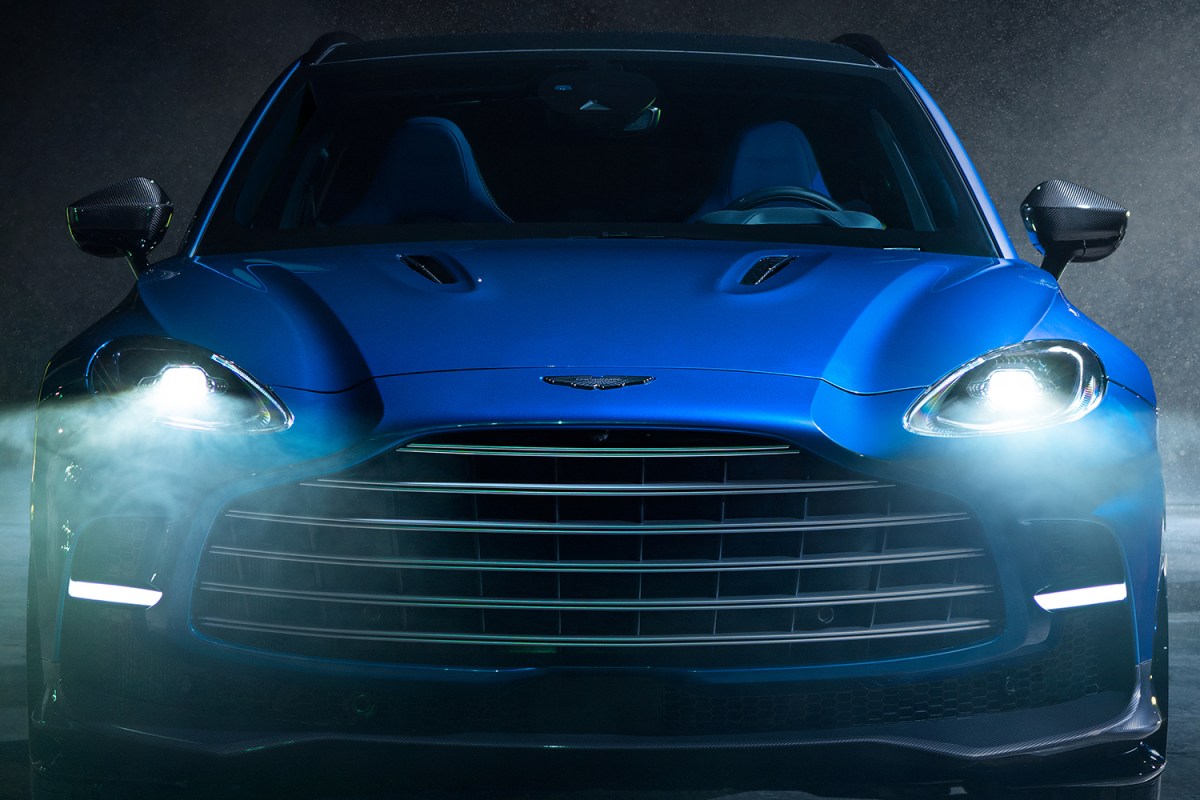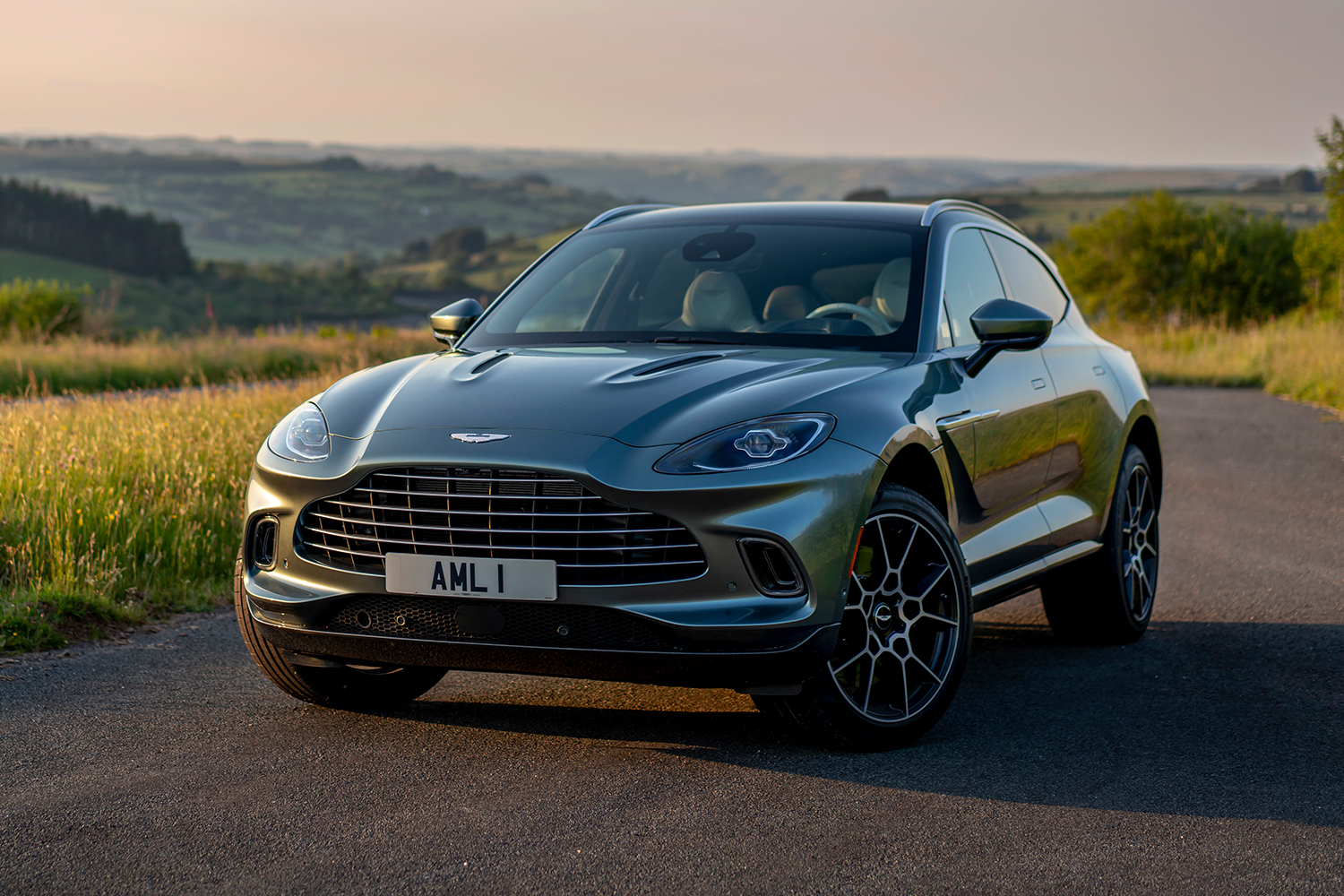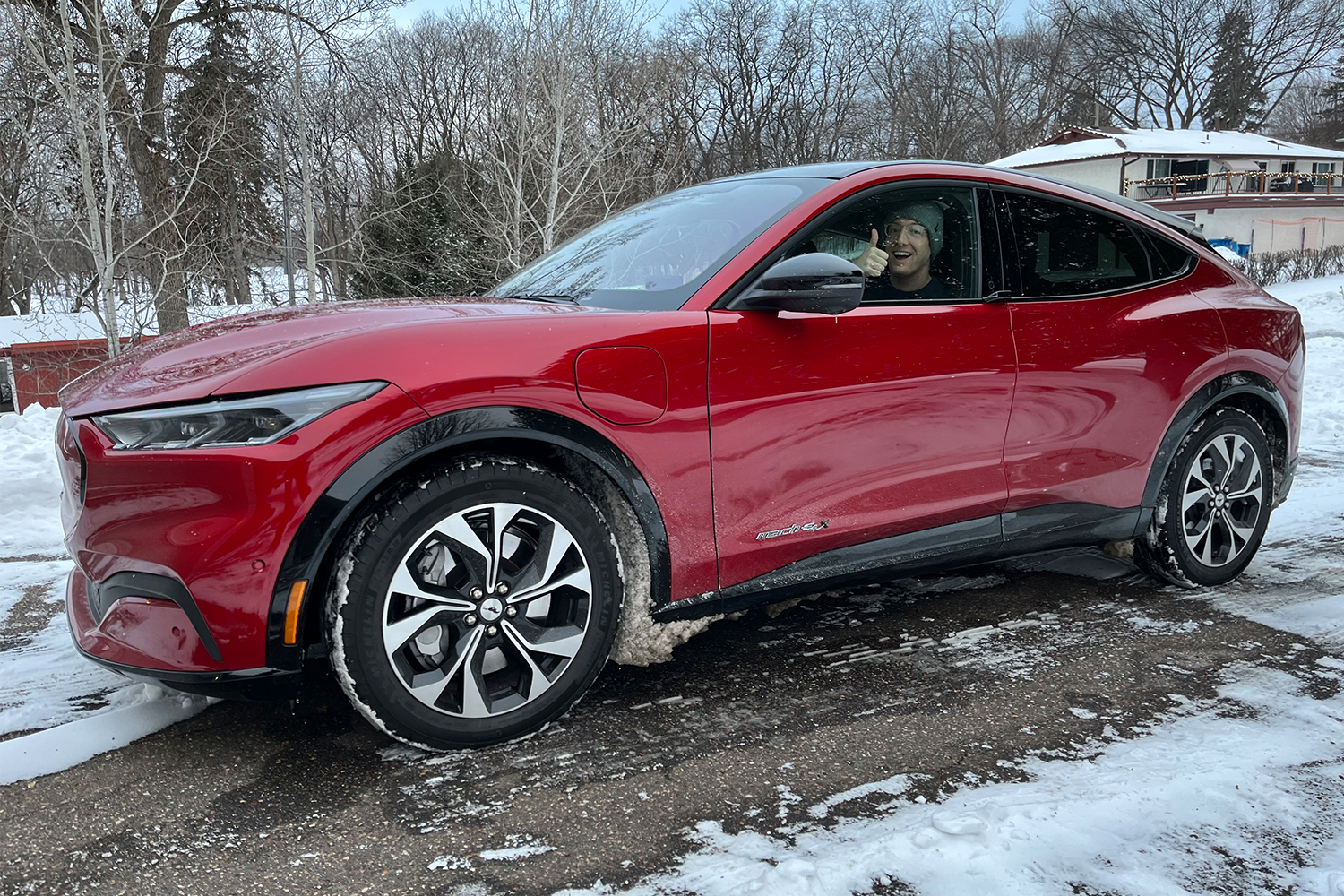It would have been easy to disparage Aston Martin if they didn’t deliver on their promise of producing the “world’s most powerful luxury SUV.” But on Tuesday, the British automaker, best known for suave sports cars worthy of James Bond, made good with the unveiling of the new DBX707, a high-performance edition of their well-reviewed family hauler. And yes, it’s got numbers that top the horsepower, torque and 0-60 charts.
The DBX707 name comes from its PS rating, not its horsepower. As a quick reminder, PS stands for Pferdestärke (German for “horsepower,” and a metric horsepower rating), but the horsepower we adhere to is the mechanical, or imperial, horsepower, and the DBX707 is rated there at 697 hp. The nomenclature makes sense — DBX707 sounds much cooler than DBX697. As for other measurements, this svelte brawler is rated at 663 lb-ft of torque, a maximum speed of 193 mph and a blistering 0-to-60 time of 3.1 seconds. (Remember, this is a four-door SUV.) To put that into perspective, the regular DBX offers up 542 hp, 516 lb-ft torque, a max speed of 181 mph and 0-to-60 of 3.9 seconds at best.
It’s a massive performance jump between the models, one that precipitates a $46,400 price bump; the standard 2023 DBX with a V8 starts at $185,600 while the DBX707, which is slated to begin deliveries in “early Q2” this year, starts at $232,000.
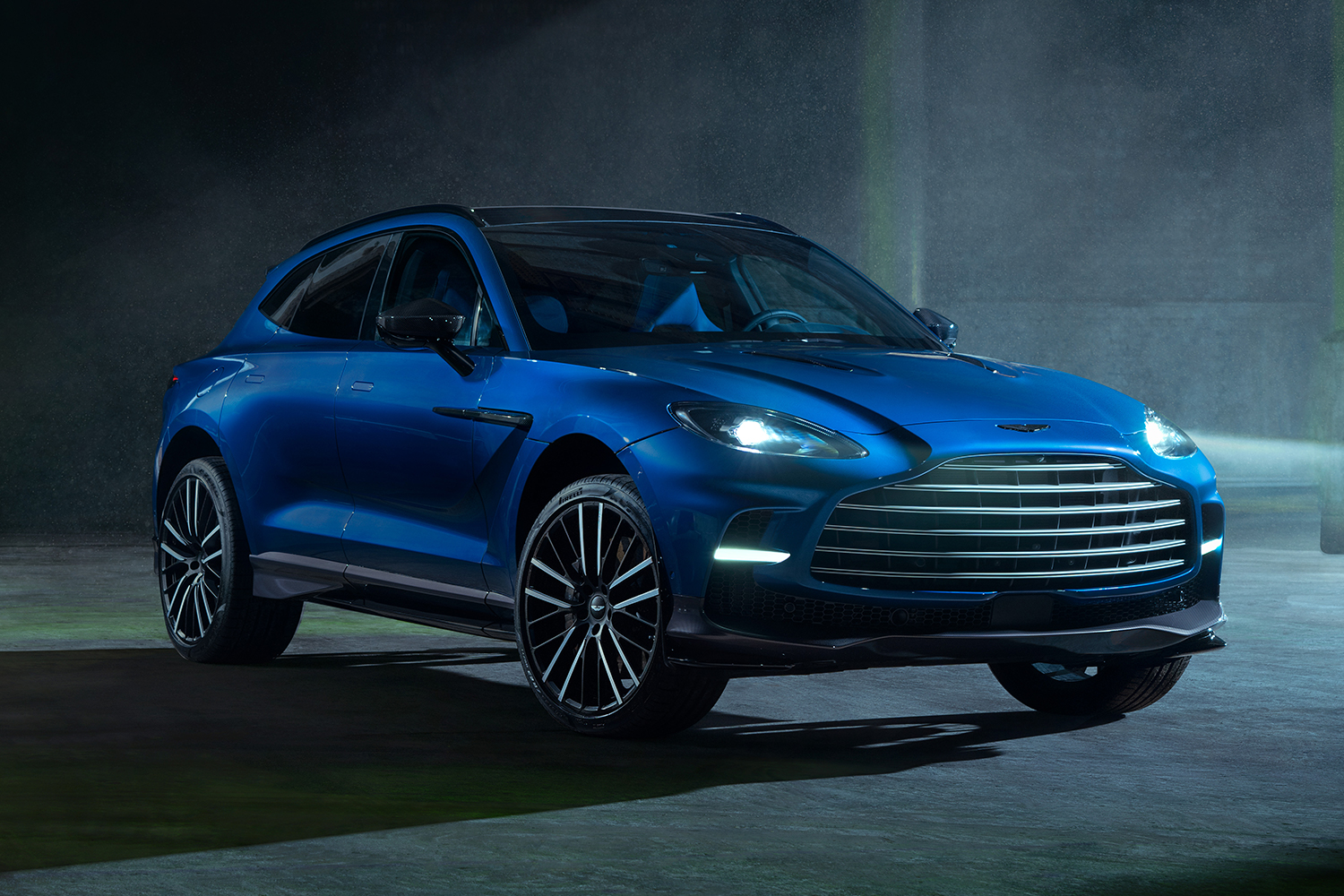
As for the moment you’ve all been waiting for: How does it compare to the other posh, performance-enhanced suburb prowlers? When Aston Martin first announced the model, its main competitor was deemed the Porsche Cayenne Turbo S E-Hybrid, with its ridiculous 670 horsepower and 663 lb-ft of torque. Others said that wasn’t a fair comparison, as the new DBX wasn’t going to be a hybrid, so the Lamborghini Urus was offered as a more suitable comparison, with 641 horsepower and 626 lb-ft of torque. In the end, it didn’t matter, because Aston Martin beat them both.
“With the DBX707 we have pushed the boundaries in every area to create a car which sets new standards of performance and desirability,” said Aston Martin CEO Tobias Moers. “The fastest, most powerful, best handling and most engaging car of its kind, it propels Aston Martin to the pinnacle of SUV performance.”
OK, let’s hit the brakes. We won’t argue with Aston Martin when it comes to its obvious success in translating its sports car prowess into a successful SUV package, but did the British automaker “[push] the boundaries in every area” with the DBX707? Of course not. There’s one crucial area where the company has failed miserably in pushing the boundaries, an area where the supposed second-place finisher leaves it in the dust: fuel economy, and by extension, emissions.
The DBX707 gets an estimated 17 mpg (15 mpg in the city, 20 on the highway) fuel economy rating. Sure, it’s not the worst of the high-performance SUVs (the Lamborghini Urus gets a combined 14 mpg, the original DBX a combined 15 mpg), and no one expected it to be good because of the fact that it is a high-performance SUV, but it’s bad when compared to the plug-in hybrid Porsche, which itself has been decried for its poor fuel economy at 18 mpg combined when using gas only (it also gets 42 MPGe — an equivalent for electric power — when in electric-only mode, which it can use for about 15 miles, according to the EPA). Plus, the Porsche starts tens of thousands of dollars less at $165,300.
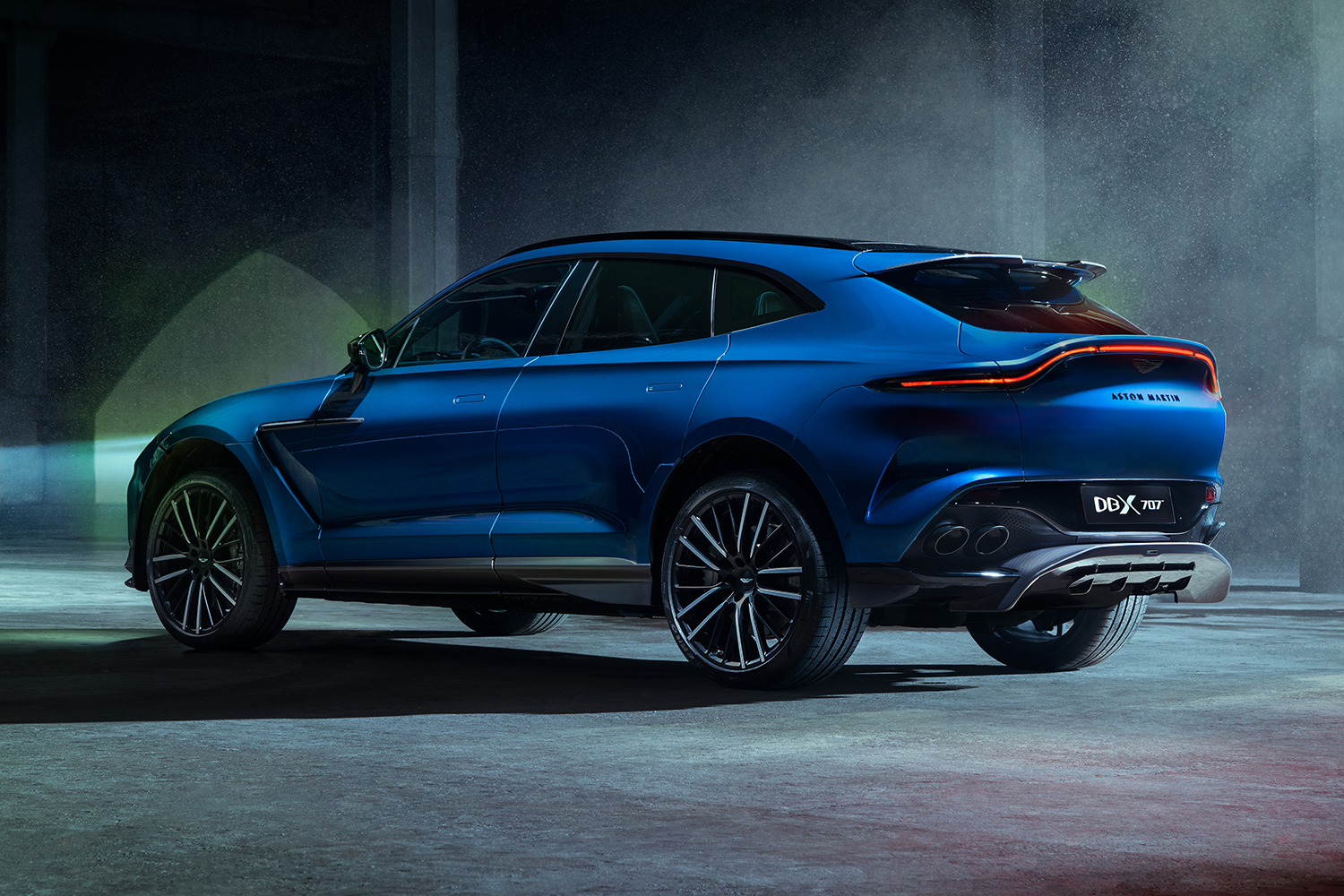
Aston Martin is going through a rough patch on its way to electrification, trying to shore up its finances before it releases its first EV hopefully in the middle of the decade. And to be fair, we are singling them out here when there are plenty of other dirty cars and companies to come down on. But to be blunt, we can’t wait any longer when it comes to slashing carbon emissions, decarbonizing transportation and taking action on climate change. A luxury vehicle that costs over $200K in 2022 simply shouldn’t get the same fuel economy as a Ford Explorer from 20 years ago, high-performance or not. At the very least, we shouldn’t be touting new cars as the “pinnacle of performance” if they’ve spent little to no time figuring out how to significantly cut fuel usage and carbon emissions that are leading us to climate disaster.
Will this make any difference to people actually shelling out for the DBX707? Probably not. As was noted in InsideHook’s original review of the DBX, luxury SUVs are “here to stay thanks to the seemingly inexhaustible interest from customers at every price point.”
I hope that’s not the case. After all, we’re already at a place where you can get a luxury electric vehicle with more horsepower than the DBX707 for about $100K less.
This article was featured in the InsideHook newsletter. Sign up now.
